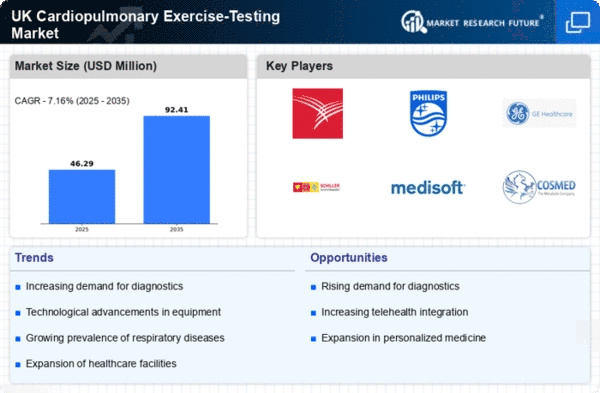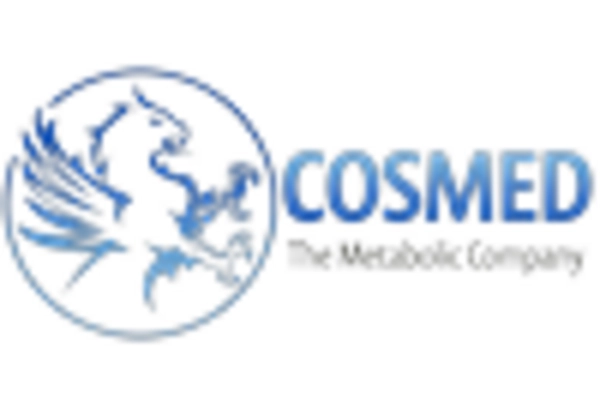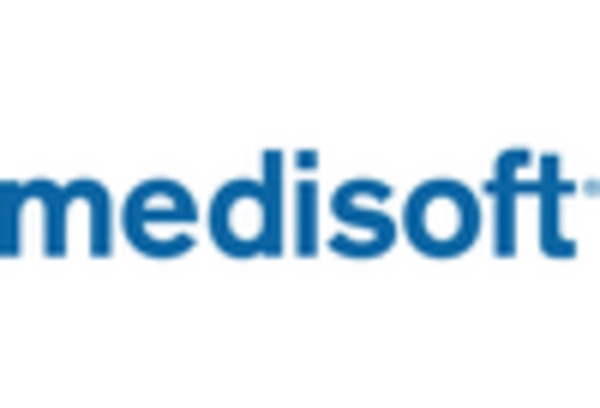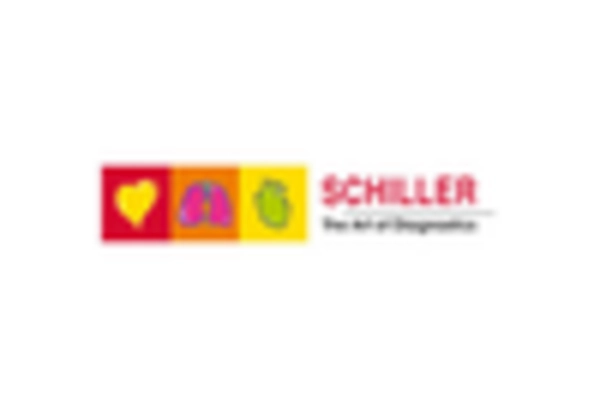Growing Geriatric Population
The increasing geriatric population in the UK is a significant driver for the cardiopulmonary exercise-testing market. As individuals age, the risk of developing cardiovascular and pulmonary diseases escalates, necessitating regular health assessments. The elderly population is more likely to experience conditions that require thorough evaluation of cardiopulmonary function, making exercise testing an essential component of their healthcare. According to demographic projections, the proportion of individuals aged 65 and over is expected to rise, which may lead to a corresponding increase in demand for cardiopulmonary exercise testing. Healthcare providers are likely to focus on this demographic, offering tailored testing services to manage age-related health issues. Consequently, the cardiopulmonary exercise-testing market is poised for growth as it adapts to the needs of an aging population.
Increased Awareness of Exercise Physiology
There is a growing awareness of the importance of exercise physiology among healthcare professionals and patients in the UK. This trend is significantly influencing the cardiopulmonary exercise-testing market. As fitness and health consciousness rises, more individuals are seeking to understand their physical capabilities and limitations. Healthcare providers are increasingly recommending cardiopulmonary exercise testing as a means to evaluate patients' fitness levels and tailor exercise prescriptions. This testing not only aids in rehabilitation but also helps in the prevention of chronic diseases. The market is projected to grow as educational initiatives and public health campaigns promote the benefits of exercise testing. Additionally, the integration of exercise testing into routine health assessments may further drive demand, as it becomes a standard practice in clinical settings.
Rising Prevalence of Cardiovascular Diseases
The increasing incidence of cardiovascular diseases in the UK is a primary driver for the cardiopulmonary exercise-testing market. According to recent health statistics, cardiovascular diseases account for approximately 27% of all deaths in the UK, highlighting a critical need for effective diagnostic tools. As healthcare providers seek to improve patient outcomes, the demand for cardiopulmonary exercise testing is likely to rise. This testing method provides valuable insights into a patient's cardiovascular and pulmonary function, enabling tailored treatment plans. Furthermore, the National Health Service (NHS) has been investing in advanced diagnostic technologies, which may further bolster the cardiopulmonary exercise-testing market. With a growing emphasis on preventive healthcare, the market is expected to expand as more patients undergo these tests to assess their cardiovascular health.
Government Initiatives for Health Improvement
Government initiatives aimed at improving public health in the UK are playing a crucial role in driving the cardiopulmonary exercise-testing market. The UK government has launched various health programs focused on reducing the burden of chronic diseases, particularly cardiovascular conditions. These initiatives often emphasize the importance of early diagnosis and preventive measures, which align with the objectives of cardiopulmonary exercise testing. Funding for healthcare facilities to acquire advanced testing equipment is also part of these initiatives, potentially increasing the availability of such services. As more healthcare providers adopt cardiopulmonary exercise testing as a standard diagnostic tool, the market is expected to expand. The alignment of government health policies with the needs of the cardiopulmonary exercise-testing market suggests a promising future for this sector.
Technological Innovations in Testing Equipment
Technological advancements in testing equipment are transforming the cardiopulmonary exercise-testing market. Innovations such as portable testing devices and advanced software for data analysis are enhancing the accuracy and efficiency of tests. The introduction of wearable technology that monitors heart rate and oxygen consumption in real-time is particularly noteworthy. These advancements not only improve patient experience but also facilitate remote monitoring, which is becoming increasingly relevant in the UK healthcare landscape. As hospitals and clinics adopt these new technologies, the cardiopulmonary exercise-testing market is likely to see substantial growth. The ability to conduct tests in various settings, including outpatient facilities and home environments, may expand access to testing services, thereby increasing overall market demand.
















